Felbrigg Estate Fungi & Slime Moulds – 30th October 2024
South of the Hall just past the entrance from the main carpark some Stemonitis slime moulds.
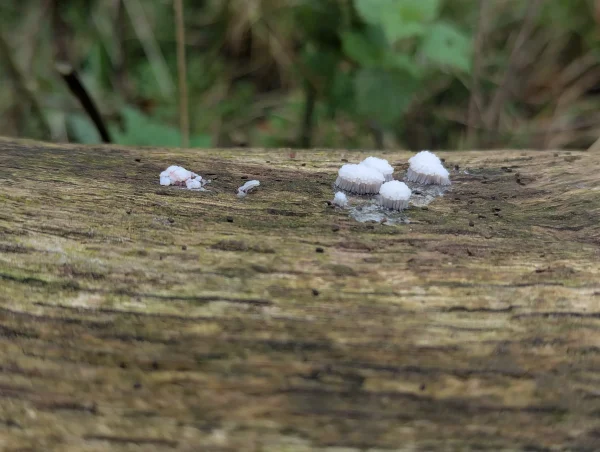
9.50am 30th October 2024
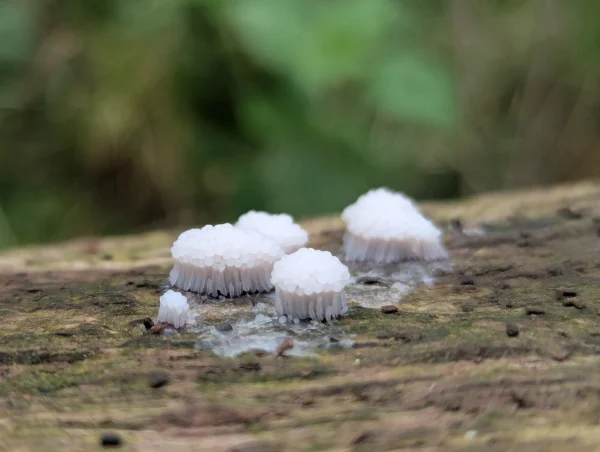
9.50am 30th October 2024
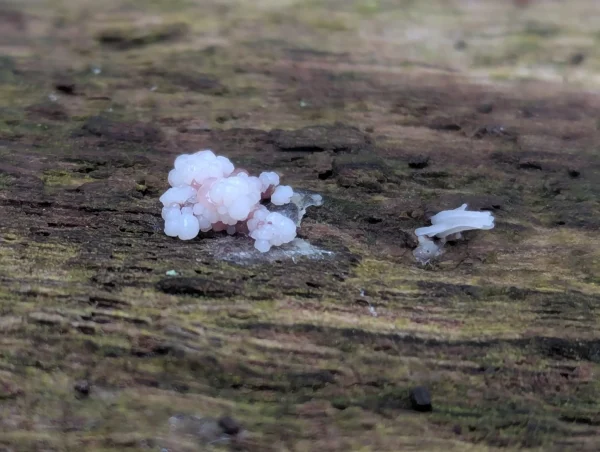
9.50am 30th October 2024
A few hours later.
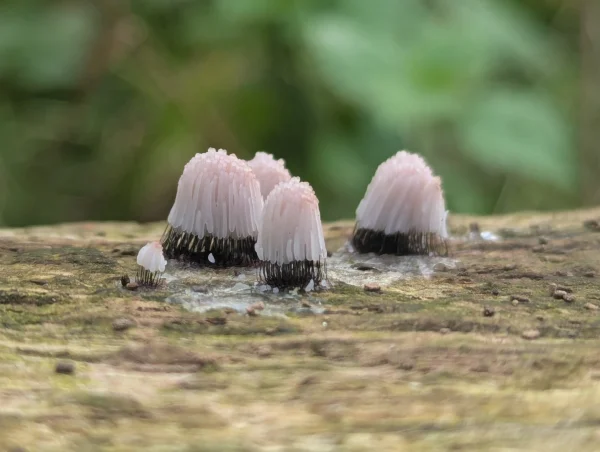
1pm 30th October 2024

1pm 30th October 2024
In the grassland to the south of the Hall we saw many Clavulinopsis — probably C. luteoalba (the apricot club) and C. fusiformis (golden spindles) — waxcaps, and fieldcaps.
The clubs below did not have paler tips and were maybe Clavulinopsis fusiformis.
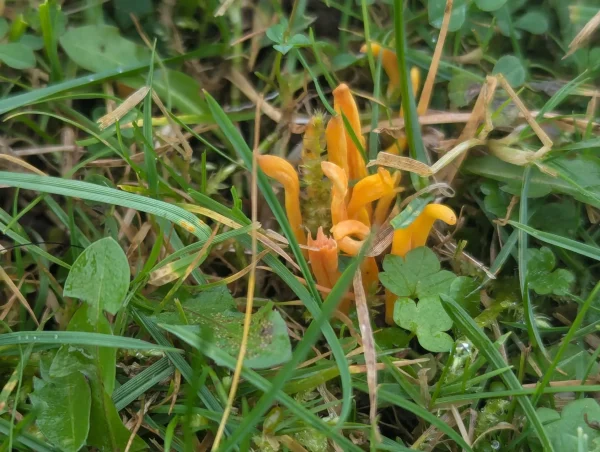
Felbrigg Estate – 30th October 2024
The clubs in the following photos appeared to have paler tips and so were maybe Clavulinopsis luteoalba.
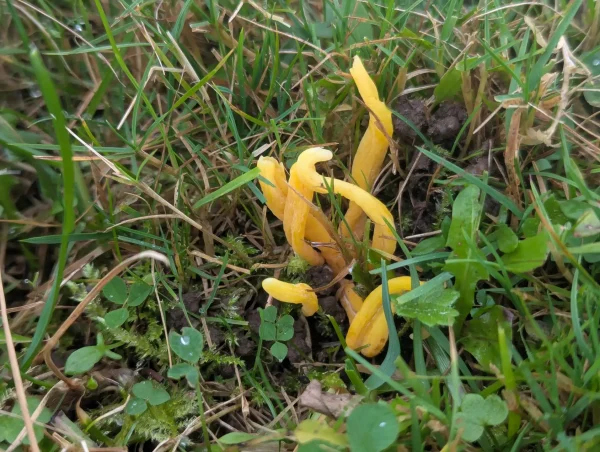
Felbrigg Estate – 30th October 2024
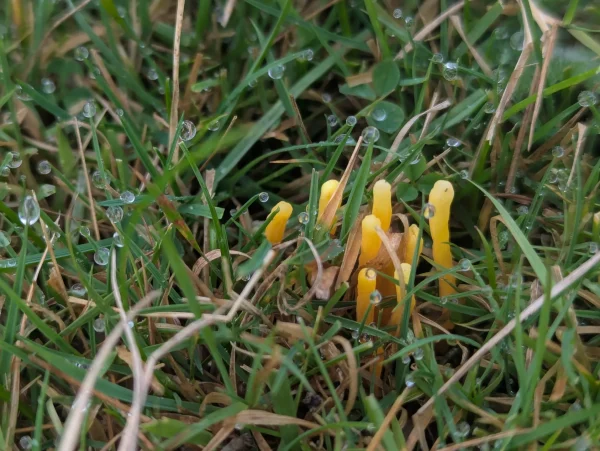
Felbrigg Estate – 30th October 2024
This snowy waxcap (Cuphophyllus virgineus) is just so impressively striking in it’s sculpted form.
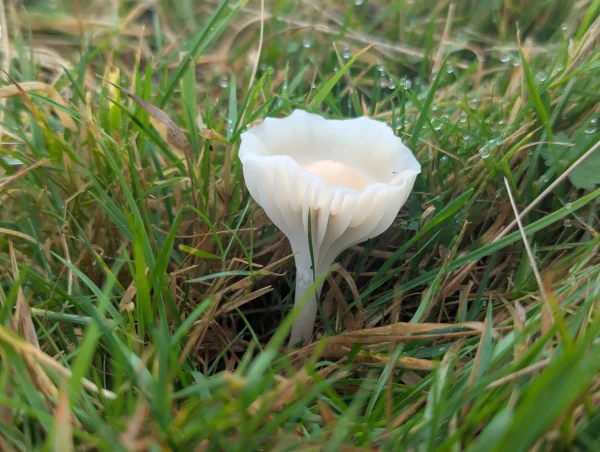
Felbrigg Estate – 30th October 2024
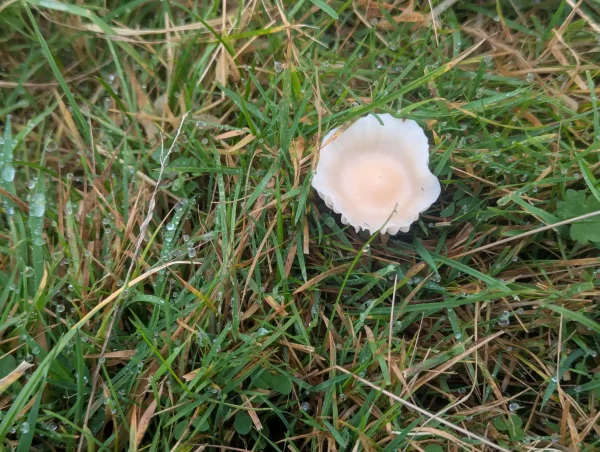
Felbrigg Estate – 30th October 2024
And Gliophorus psittacinus the parrot waxcap.
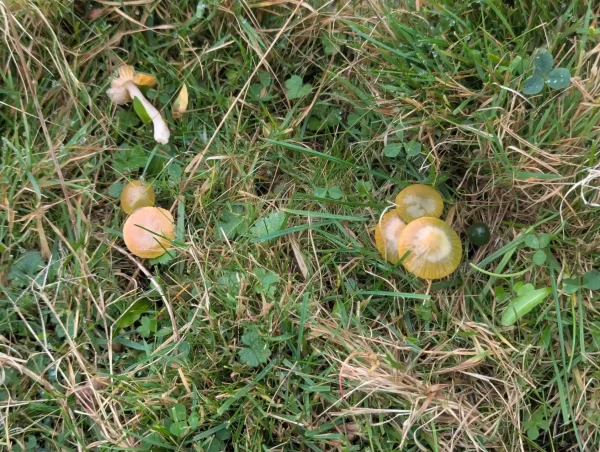
Felbrigg Estate – 30th October 2024
The wonderful, deep, glossy, emerald green colour of the young parrot waxcaps is almost alien. And then the colour transformation to orange-yellow with hints of green in the upturned caps.
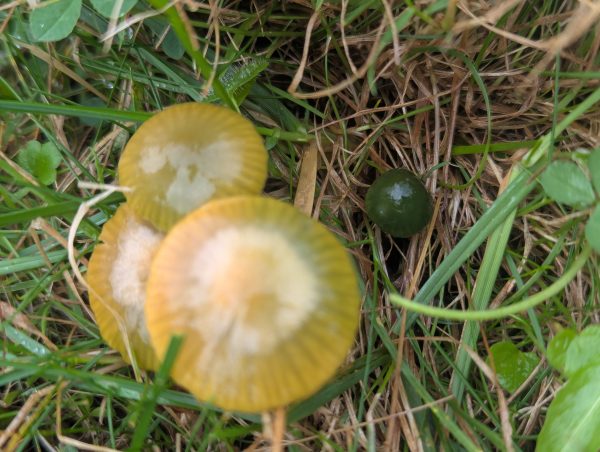
Felbrigg Estate – 30th October 2024
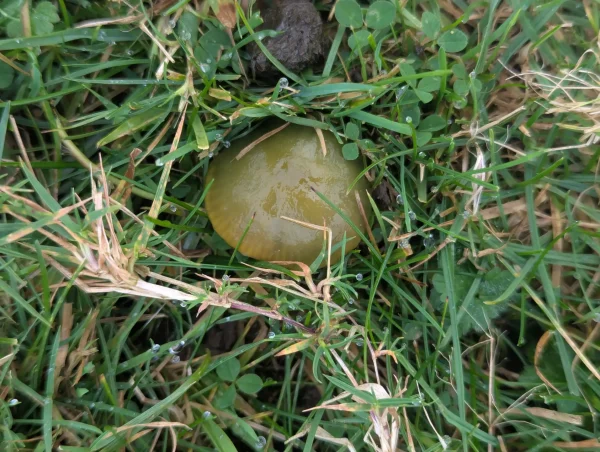
Felbrigg Estate – 30th October 2024
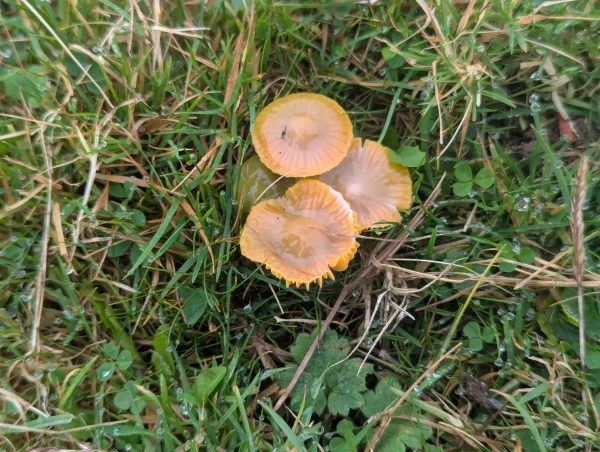
Felbrigg Estate – 30th October 2024
There’s something inexorable about the upturned form of these waxcaps
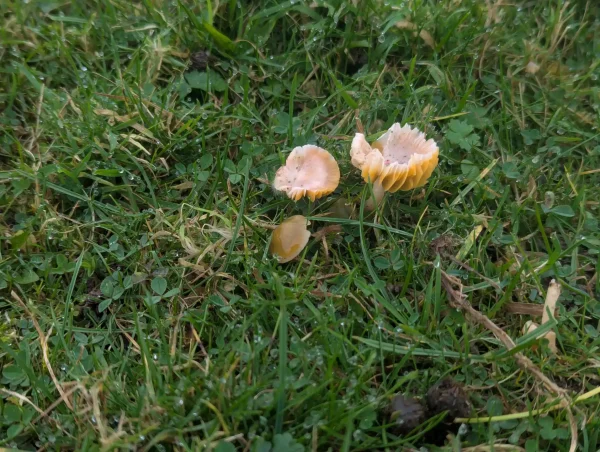
Felbrigg Estate – 30th October 2024
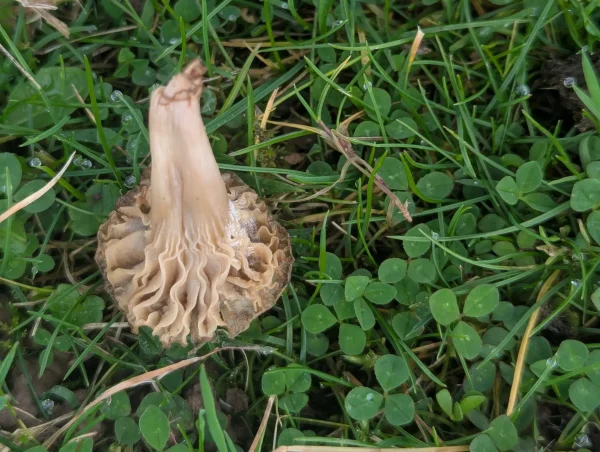
Felbrigg Estate – 30th October 2024
To think that the small yellow ovoid fruiting body of Bolbitius titubans (the yellow fieldcap) transforms into these expanded flat caps (below) sometimes becoming upturned at the edge.
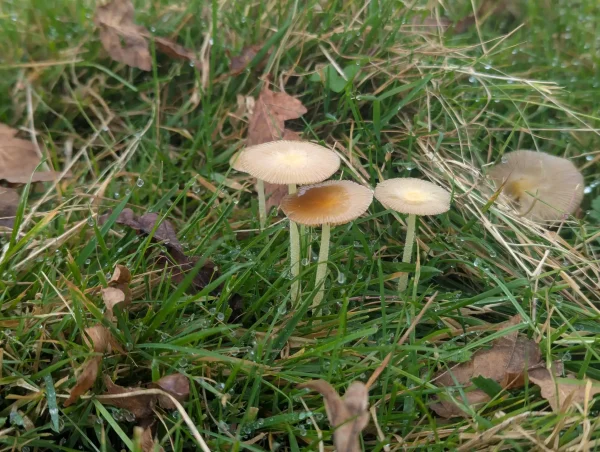
Felbrigg Estate – 30th October 2024
These slightly upturned yellow fieldcaps are as compelling as the upturned waxcaps.
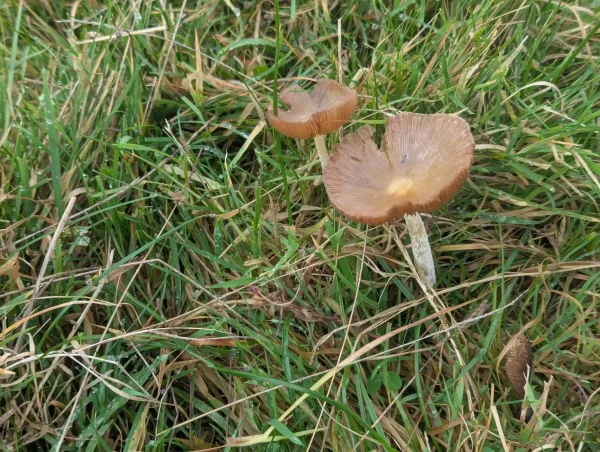
Felbrigg Estate – 30th October 2024
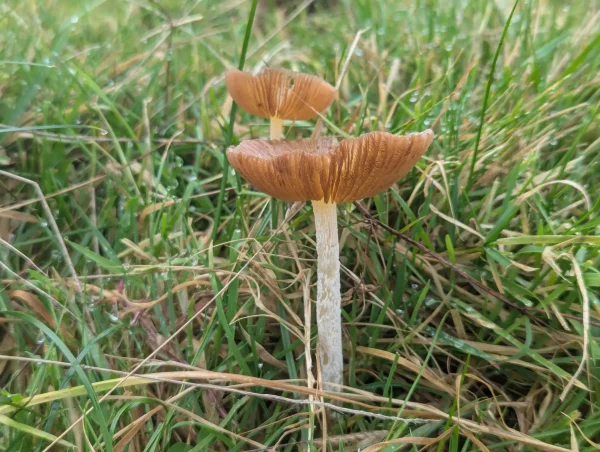
Felbrigg Estate – 30th October 2024
Further south towards the lake on a large rotting trunk some unidentified mushrooms.
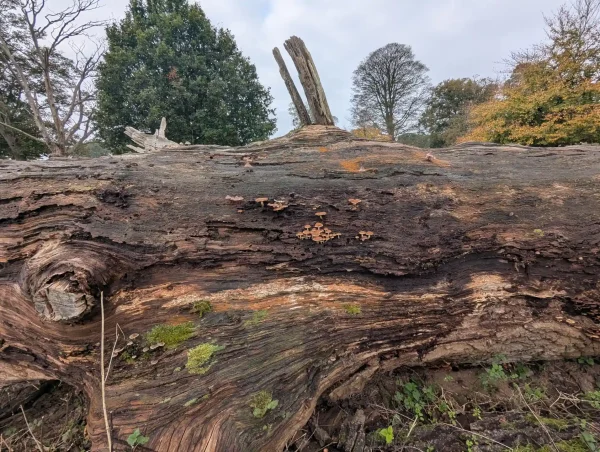
Felbrigg Estate – 30th October 2024
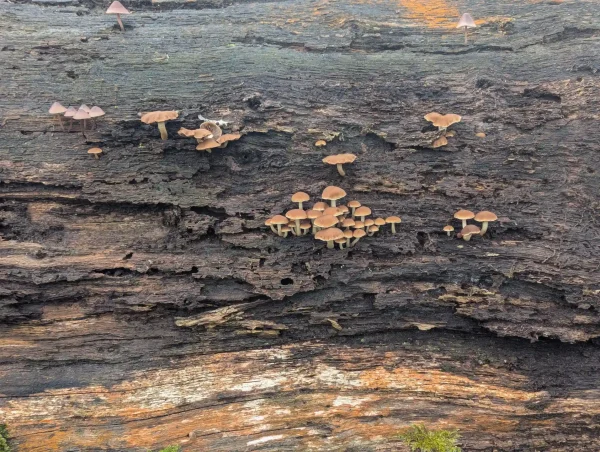
Felbrigg Estate – 30th October 2024
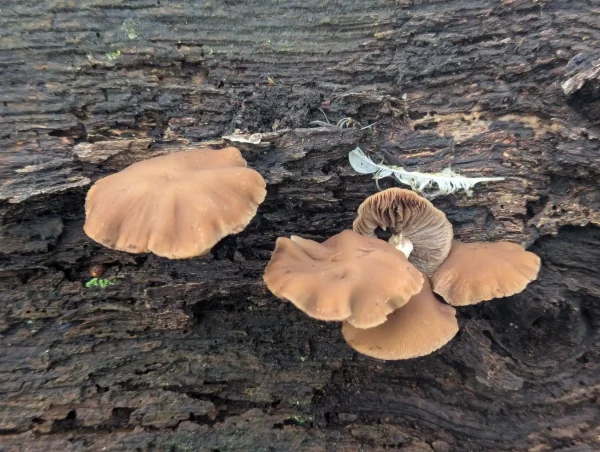
Felbrigg Estate – 30th October 2024
Could the fungi below be Lycoperdon pyriforme the stump puffball? First Nature states that this fungus is found growing mainly on the stumps and roots of dead trees (which they were) and that they can appear to be growing from the soil but there will always be some decaying wood beneath the surface,
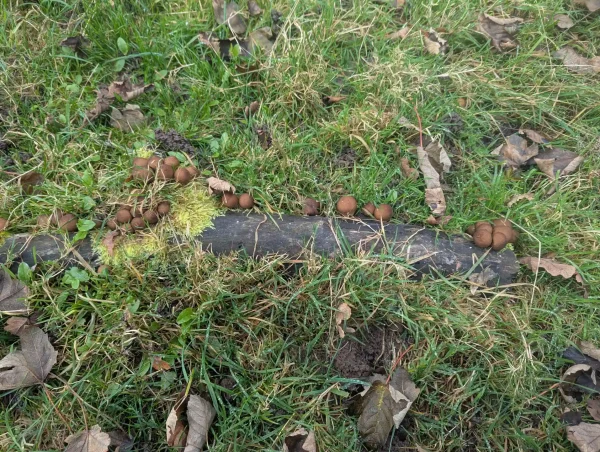
Felbrigg Estate – 30th October 2024
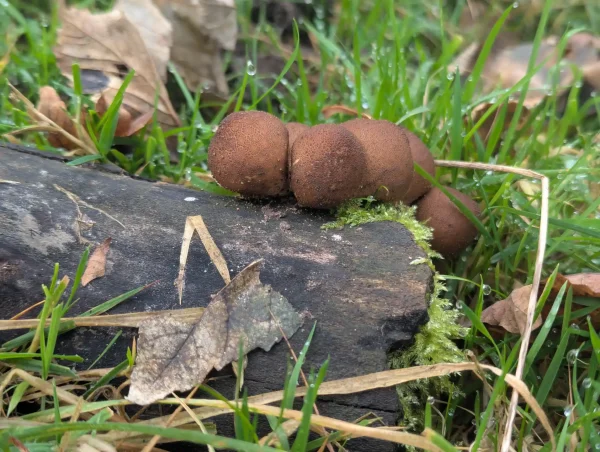
Felbrigg Estate – 30th October 2024
Near where we saw Macrolepiota procera (the parasol mushroom) on a visit last year, we discovered an exciting super large ring of Macrolepiota procera.
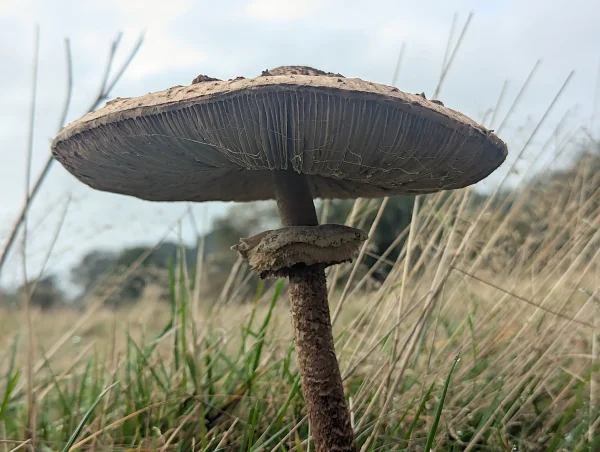
Felbrigg Estate – 30th October 2024

Felbrigg Estate – 30th October 2024
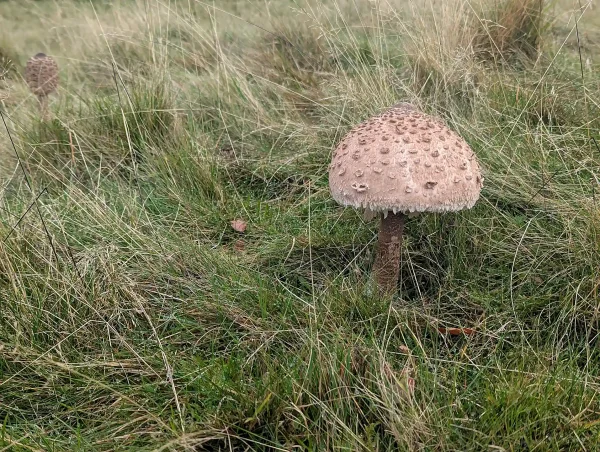
Felbrigg Estate – 30th October 2024
Outside of the ring we spotted a small group of younger M. procera with — and I’m not fluent with fungi morphology — what appeared to be an intact fawn coloured universal veil. Along the edge of the cap this veil had broken away revealing the lighter cap beneath.
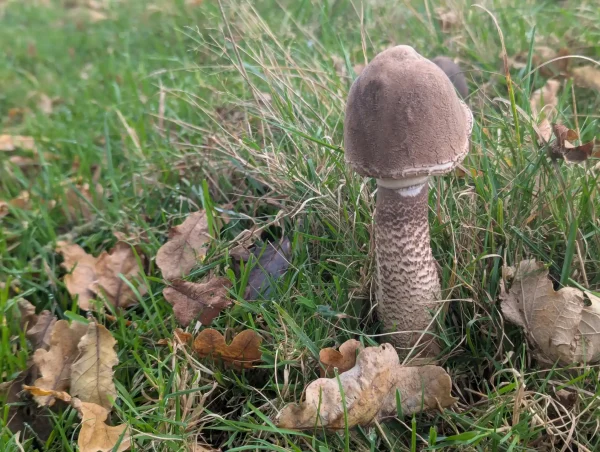
Felbrigg Estate – 30th October 2024
Within the ring we spotted butter and scarlet waxcaps (Hygrocybe ceracea and Hygrocybe coccinea) and more yellow fieldcaps (Bolbitius titubans) in their yellow ovoid form.
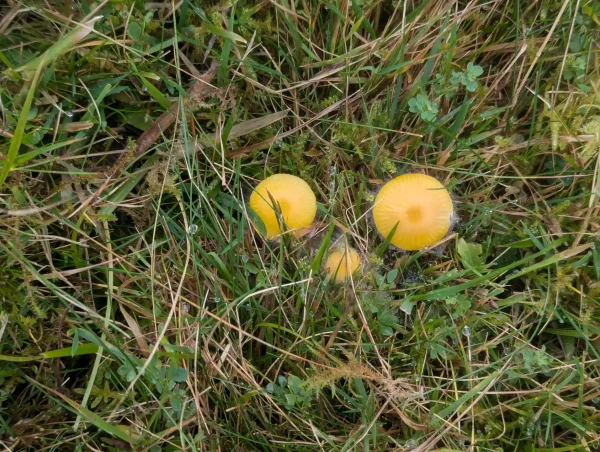
Felbrigg Estate – 30th October 2024
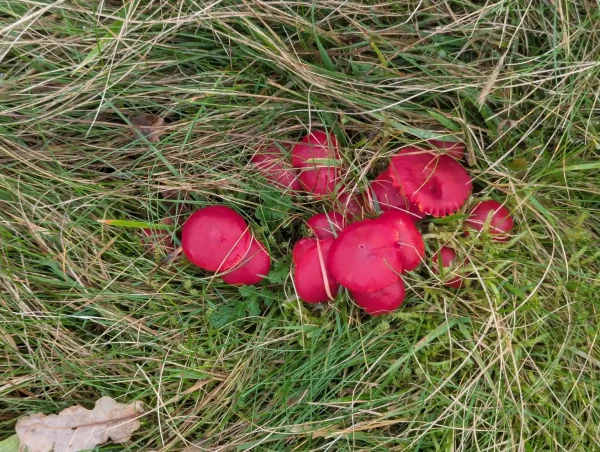
Felbrigg Estate – 30th October 2024
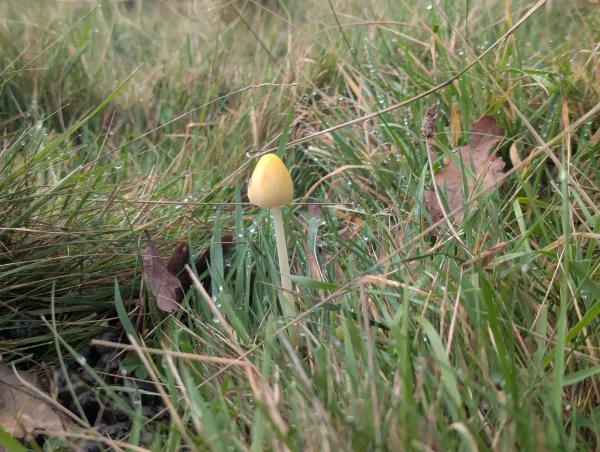
Felbrigg Estate – 30th October 2024
In the woodland parallel with Lion’s Mouth we came across some Ramaria likely stricta, a jelly cup that looked like Neobulgaria pura (Beech jellydisc), possibly Ascocoryne sarcoides (purple jellydisc) in it’s teleomorphic stage, Lycogala epidendrum (wolf’s milk) slime mould and a single Typhula probably fistulosa.
On a small branch were two Ramarias, a Russula (probably) peeking out from the under it. And just above the right-hand Ramaria a single Neobulgaria pura.
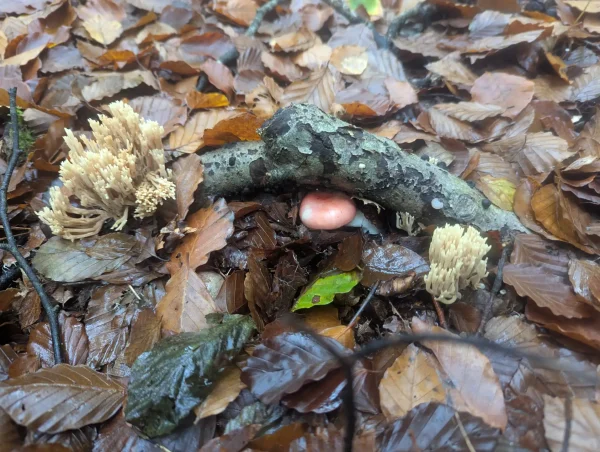
Felbrigg Estate – 30th October 2024

Felbrigg Estate – 30th October 2024
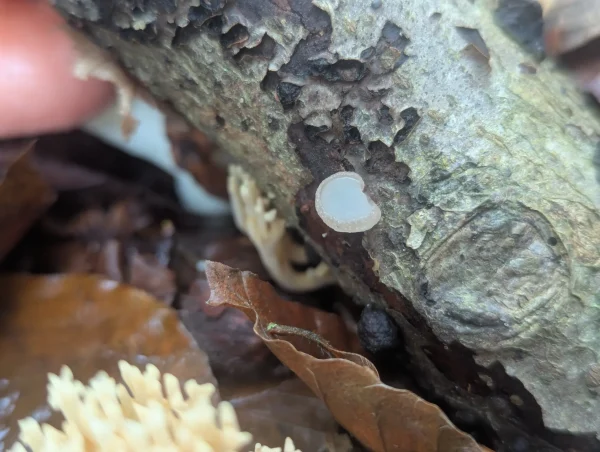
Felbrigg Estate – 30th October 2024
Nearby on a rotting trunk was some possible Ascocoryne sarcoides in it’s teleomorphic stage and some Lycogala epidendrum.

Felbrigg Estate – 30th October 2024

Felbrigg Estate – 30th October 2024

Felbrigg Estate – 30th October 2024
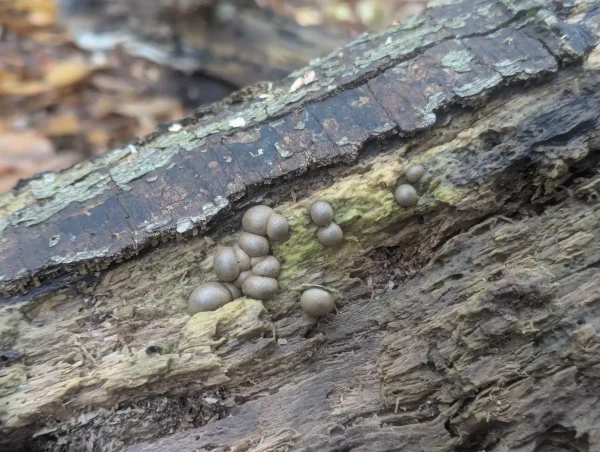
Felbrigg Estate – 30th October 2024
Further into the Great Wood we stumbled across a branch fragment populated with what looks like it could be Pterulicium gracile.
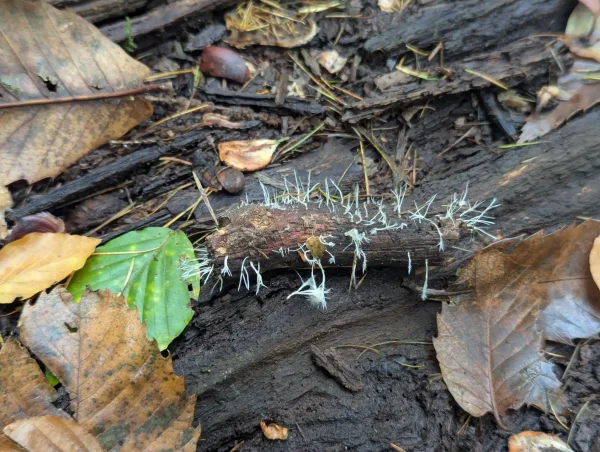
Felbrigg Estate – 30th October 2024
During lunch my foot overturned a small branch populated with closely grouped clusters of likely young Arcyria slime mould sporangia.
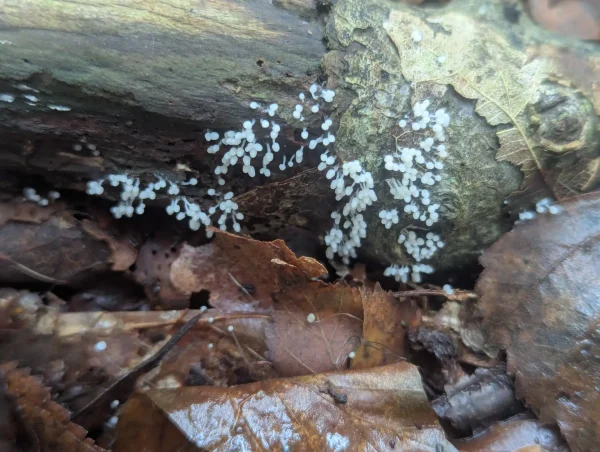
Felbrigg Estate – 30th October 2024
And on the trunk that we were sitting on some probable Trichia slime mould sporangia and an unidentified yellow plasmodium.
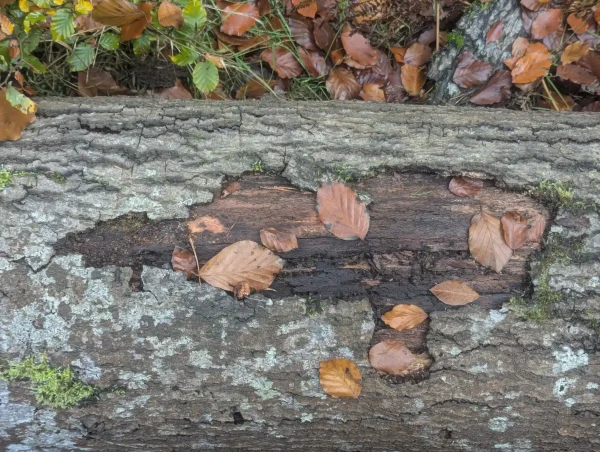
Felbrigg Estate – 30th October 2024
Actually, in the photo above on the left in the barkless area are three Scutellinia fruiting body disks.
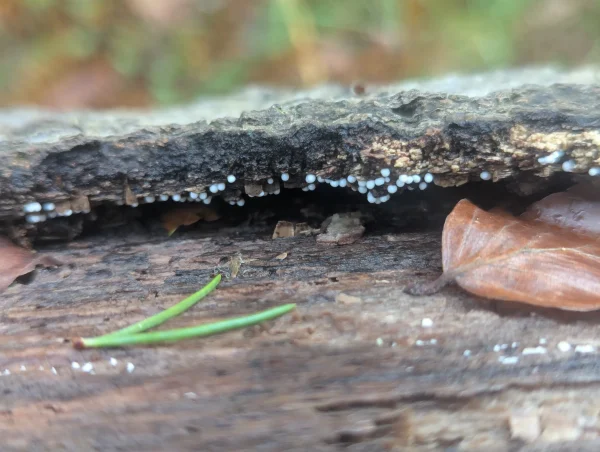
Felbrigg Estate – 30th October 2024
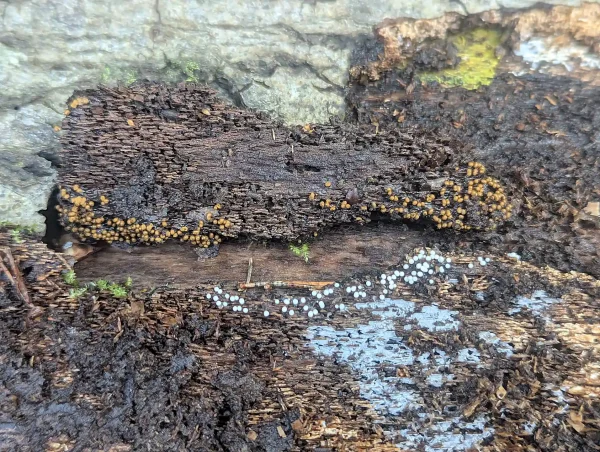
Felbrigg Estate – 30th October 2024
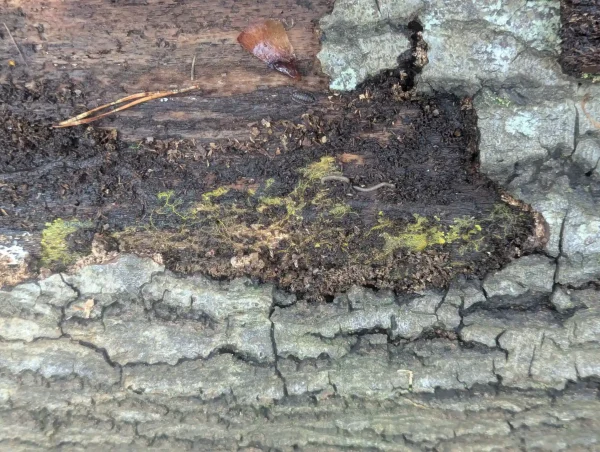
Felbrigg Estate – 30th October 2024
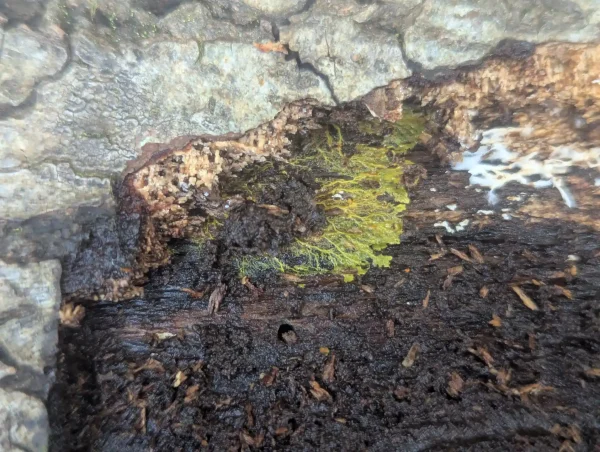
Felbrigg Estate – 30th October 2024
Near the Ice House I was drawn to a large fallen trunk and decided to investigate for slime moulds. The trunk was host to groups of probable Trichia slime mould sporangia, many Scutellinia eyelash fungi and a small Ascocoryne sarcoides (purple jelludisc) next to what I like to imagine may have been a Dictydiaethalium plumbeum slime mould.
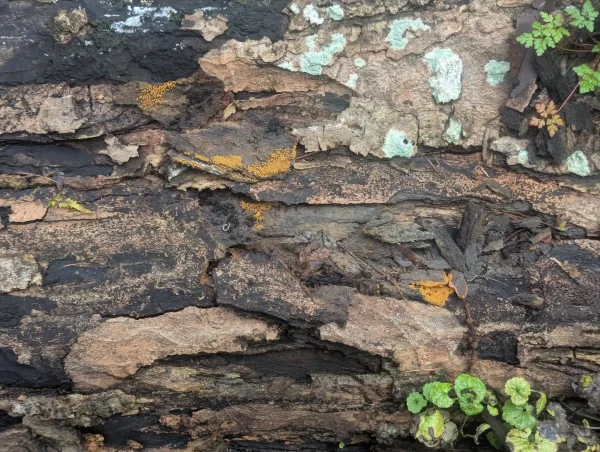
Felbrigg Estate – 30th October 2024
The photo below shows a gregarious colony of tightly grouped curry-yellow sporangia and above some small groupings of more mature ash-grey sporangia.
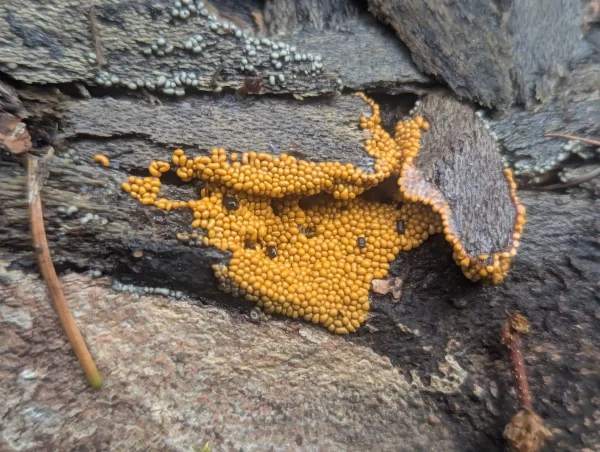
Felbrigg Estate – 30th October 2024
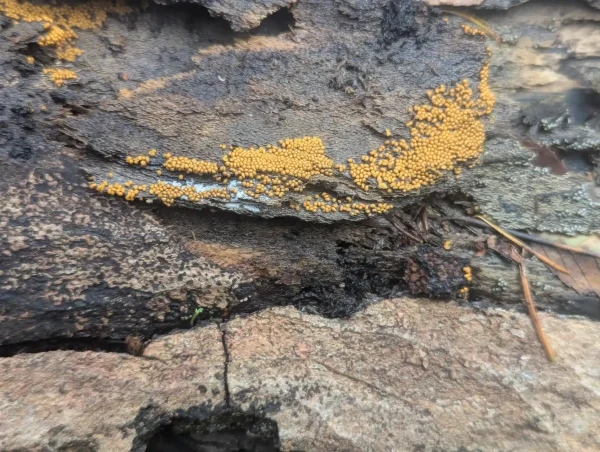
Felbrigg Estate – 30th October 2024
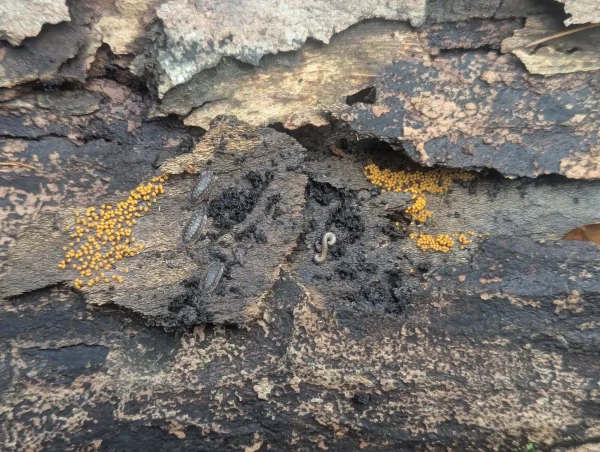
Felbrigg Estate – 30th October 2024
In the photo below a line of sporangia groups maturing from right to left, curry-yellow to ash-grey.
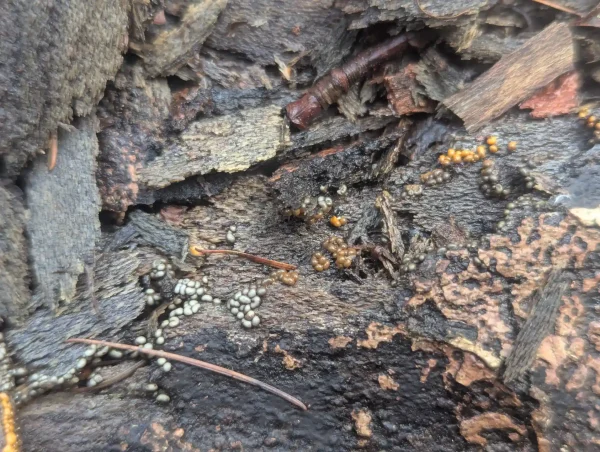
Felbrigg Estate – 30th October 2024
In the photo below sporangia following cracks in the bark ending with a small gregarious group next to the Scutellinia fungi.
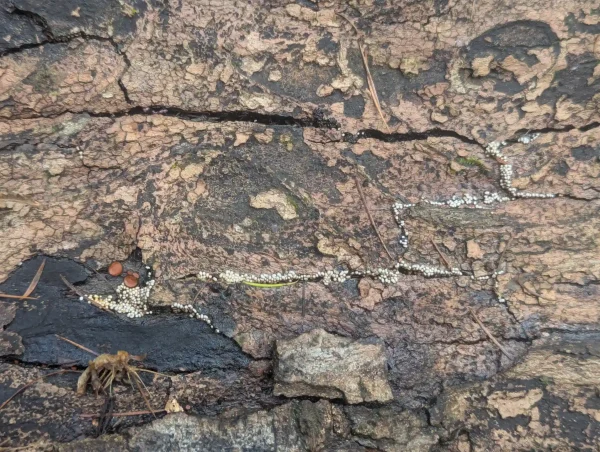
Felbrigg Estate – 30th October 2024
Close up below of the Scutellinia fungi and the sporangia.
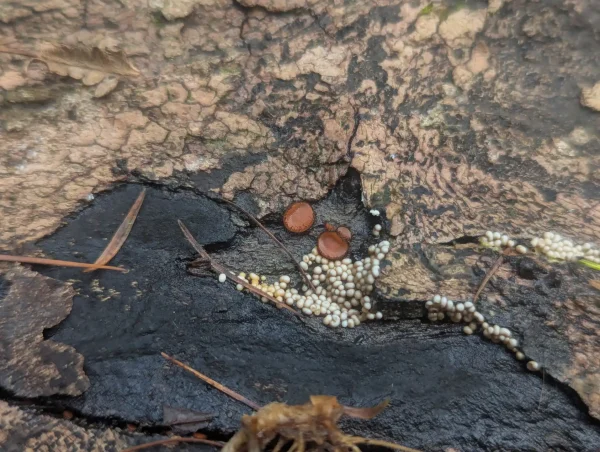
Felbrigg Estate – 30th October 2024
The video blow shows the amazing number of Scutellinia on the trunk.
In the photo below, could the olivaceous buff, slimy, cushion-like (pulvinate) growth — below the Ascocoryne sarcoides — have been a Dictydiaethalium plumbeum slime mould aethalium? It seems to have a white translucent perimeter which could be a hypothallus? The last time I saw this slime mould was on my daughter’s 2022 mycological survey of the woodland at Strumpshaw Fen [1] and I have been on the look out for it ever since.

Felbrigg Estate – 30th October 2024
[1] Dictydiaethalium plumbeum at Strumpshaw Fen
https://www.amcalenan.uk/dictydiaethalium-plumbeum
https://www.amcalenan.uk/dictydiaethalium-plumbeum-2/
https://www.amcalenan.uk/dictydiaethalium-plumbeum-3/